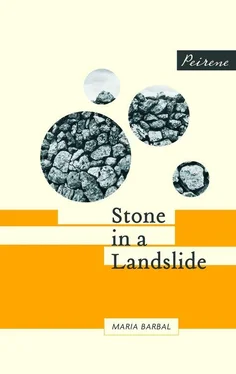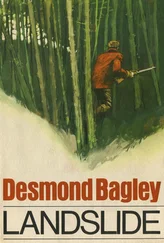I’d always been afraid of death. Of death at home. Of having to speak in whispers and look at someone who’ll be carried off feet-first the next day to be buried in a hole. Of being kissed by everyone, of false condolences and sincere condolences and of seeing the reddened eyes of people I love. And now I didn’t even have a dead body. I was more afraid and more anguished not to have seen his body still, not to have seen his beautiful cheeks, once the colour of pomegranate flowers, pale and waxen. I was sad and I had no body with eyes to close, to sit up with or buy a coffin for or accompany to the grave with freshly-picked flowers and weep over gently. He’d gone as quickly as a rose cut from the bush and I’d no last memory of him except a little spark as he looked at me during our strange goodbye. I knew he was dead and I would never again have him at my side, because war is an evil that drags itself over the earth and leaves it sown with vipers and fire and knives with points upright. And I was barefoot with my children, and I had nothing apart from still being alive. I didn’t even have a mourning dress because his death wasn’t like others, it was a murder that had to be forgotten immediately. His name was to be entombed behind eyelids and mouths with thick cement. I knew he was one of the ones they’d killed because they were taking me in the lorry of sorrow to Aragón. Because they had to take us wretches away from the only thing left to us: our misery, with our scrap of sky and our vale of tears.
When I realized that we were alone, like a flock without a shepherd, perhaps with the wolf circling, a great sense of abandonment came over me. It broke my heart that I didn’t feel I had the strength to be a mother. I was stunned behind a wall of sadness and since I couldn’t scream or lose control, I wanted to stay still, unmoving, unthinking. Focused on sorrow and without hope. The girls had to keep on living and I wanted to die. I felt that if I just stayed still with that hell inside, I was bound to explode and then it would be goodbye Conxa. But abandoning the girls to their fate tormented me and when Elvira told me to eat, after I’d refused any food for two days, I did as she said. I had to force the bread down my throat, which wasn’t allowing anything to pass, like a reed stalk that hasn’t been cleaned through properly… all under the watchful eye of my eldest daughter, roles reversed for the first time. I wanted so much to shout, Enough!
Elvira adapted to her new life. The young can do anything. Even though she was knocked back many times. Because she moved around, spoke to everyone, wasn’t ashamed of anything. They called us Reds. They’d also killed men from where we were staying. Many others had gone to France. Even entire families, people said.
The camp we stayed in was beside a village a little smaller than Montsent. One day a girl of about the same age insulted Elvira because she said the Reds had killed her boyfriend. Luckily, Elvira was accompanied by a boy from Aragón who defended her, poor boy. There were those who wanted us not only to suffer but to feel guilty as well. Why do hundreds of stones always fall at once?
Six people were sleeping crossways on our mattress. There were lice and, as much as we tried to wash ourselves conscientiously, we couldn’t avoid them completely. We ate badly but they didn’t starve us. We worked: cleaning, in the infirmary, sewing… It was full of Italians. They scared us, we stayed away from them as much as we could.
The days weighed on my heart like flagstones. The endless tears had dried, everything seemed like a nightmare that had to end, one day or another. Beyond the nightmare, I thought I could make out hope. The hope of going home. Maybe they’d lied. It couldn’t be true that they killed him, so full of life, without any proof. They couldn’t just have said: You, you and you… Maybe they were in prison or evacuated like us. What could a soldier know? I didn’t share any of these thoughts with the girls. I kept them to myself like a secret that, soon, when they became reality, would fill the girls with joy. Silence calmed me and gave me strength. Keeping quiet, daydreaming about the way the hours of a day turn out. Any old day, a normal day or a bad day. Of the day when a bolt of lightning killed a cow and you were annoyed by it, and the day that everything seemed to fall into place. The hay in the haystack, the chickens roosting, the cows quiet in the stable, and everyone having dinner at the table. No, I didn’t say anything to the girls. They needed to move on. What had happened was a huge blow to them but there was no point in thinking about it. You have to keep going. They couldn’t fall back on hoping that it wasn’t true… I, on the other hand, I needed to go back just to be able to breathe a little.
They didn’t tell us anything. How long would they keep us here? What were we doing there? What were women and children good for up there? We barely understood the orders they gave us…
The land there seemed good. There wasn’t plenty of water like we had, true. It was lower and warmer. The people must have lived well, before, but then they didn’t have a normal life either. Only soldiers here and there, orders, shouting and silence.
They made us pray in the morning and at night. I didn’t know the prayers in Spanish and I just pretended by moving my lips. I didn’t want to learn to pray again. Inside I was already praying to God and I spoke to Him for a long time. I explained things to Him and I begged Him. But always on the inside. Like two friends who know each other and can tell each other everything just through their eyes. No need to open your mouth, just find a bit of the pain and pull at it gently like wool from a skein, let it unravel, unravel… until you can’t see colours any more because your eyes have flooded but it’s not tears that fall from your eyes. The wool you were unravelling has turned into a sheet of water slipping down your cheek, and just as you were going to let out a sob, you realize you’re not alone. A knot forms in your throat, causing such a strong pain but you swallow and swallow, until slowly you untangle the knot and you’re left with the skein. A fragment of sorrow, knot and all, has gone down directly to your stomach.
When they entered Barcelona, someone must have said that they could send us home. It had been five and a half weeks. When we got to the chapel at Sant Josep, which meant we were within sight of Pallarès, my legs were still trembling.
Before we left Montsent, they’d sent us to see a lieutenant colonel in his study, four at a time. The three of us went in with Mundeta, who’d become like family by now. He kept us standing by the desk for a while, with a soldier guarding the closed door. He made us give our names and after that he did all the talking, in Spanish. “ Our country’s shame is over. Thanks be to God we are saved. We expect your conduct to be impeccable from now on. If you are good Spaniards, then you will have nothing to fear. Now go, and don’t forget what I said .” He had a thick black moustache that didn’t suit his very small nose. I don’t remember his eyes. I’d only given him a quick glance as we went in. The whole time he was speaking, I looked at my skirts, which had a pleat that was fraying more with each passing day, and my toes, poking out of my espadrilles. They tried to make us feel guilty. It was the same old song over and over, and I was afraid for my daughters. We all behaved as if we were mute, and when Mundeta seemed about to open her mouth, I squeezed her hand and luckily the soldier at the door was already opening it for us.
Home on foot, from Montsent, we looked at everything as if for the first time. Clematis was blooming, budding everywhere. It grew among the brambles, fearless of the thorns. White clematis. Clematis, tender but strong. Clematis to tie the sheaves. Clematis to make skipping ropes for the children. I plucked a soapwort bud just coming into flower and the sweetness of its scent made me so happy that I cried. Then in the middle of the road all three of us hugged each other and couldn’t stop crying, our tears starting each other off. I thought I heard something and said: That’s enough, maybe people have heard that we’re back. I felt my cheeks burn as we walked past the first houses. Like the day we left, there was nobody to be seen.
Читать дальше












